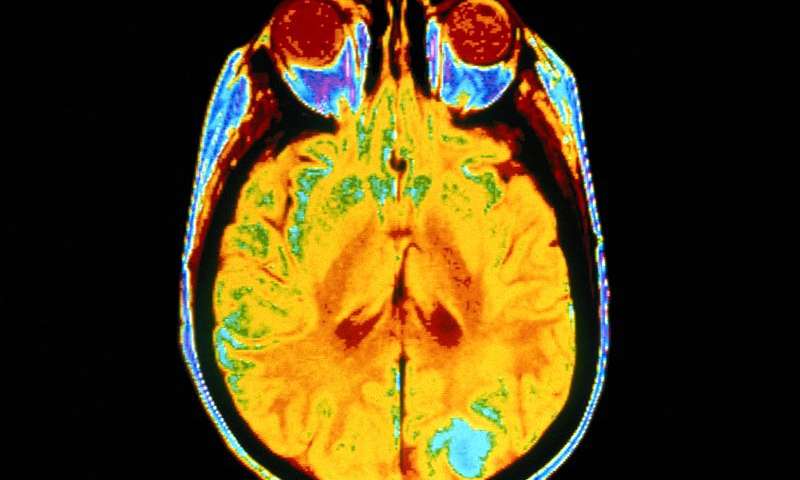Homocysteine – Keep It Low for healthy Vision (And Yes, That’s a Real Thing)
Hey there, fellow eye enthusiasts! Let’s talk about something you probably haven’t Googled at 2 a.m.: homocysteine. Sounds like a fancy lab experiment, right? But trust us—this amino acid is quietly pulling strings in your body, and if it gets too high, your vision could pay the price. Who knew? (Spoiler: We did. Because, well, eyes are our thing.)
At Liberty Laser Eye Center in Vienna, Virginia, we’re all about keeping your peepers pristine—whether that’s through Lasik eye surgery, wrangling dry eye treatment, or nerding out over the latest research. Today, let’s unpack why homocysteine matters, how to tame it, and why your eyeballs will thank you. Oh, and we’ll sneak in some shameless plugs about our Washington DC-adjacent clinic. You’re welcome.
What Even Is Homocysteine? (And Why Should We Care?)
Homocysteine is like that one friend who’s fun in small doses but becomes a nightmare when they overstay their welcome. It’s a natural amino acid, but when levels spike, it’s linked to everything from heart issues to—yep—vision problems. High homocysteine can damage blood vessels, including the tiny ones feeding your retina. Nearsightedness or farsightedness might be your usual gripes, but this? This is next-level eye drama.
FYI: Studies show that elevated homocysteine is tied to retinal vein occlusion, glaucoma, and even macular degeneration. Not exactly a party for your optic nerve.
Homocysteine & Your Eyes: The Sneaky Connection
Ever rubbed your eyes after a long day and thought, “Wow, I Need a vacation”? Imagine what homocysteine does on a cellular level. High levels can:
- Weaken blood vessels → Reduced oxygen flow to the retina.
- Boost oxidative stress → Hello, blurry vision and floaters.
- Accelerate aging in eye tissues → Because who doesn’t want Presbyopia faster?
Here’s the kicker: You won’t feel homocysteine rising. No alarm bells. No sudden “I should eat more spinach” epiphanies. That’s why annual eye exams are non-negotiable. And hey, if you’re near Vienna, Virginia, swing by Liberty Laser Eye Center. We’ll check your homocysteine-related risks and chat about Lasik recovery times. Multitasking!
How to Tame the Homocysteine Beast
Wanna keep this amino acid in check? Let’s get tactical:
Diet Hacks (No, Kale Smoothies Aren’t Mandatory)
- B vitamins: Folate (B9), B6, and B12 are homocysteine’s kryptonite. Load up on leafy greens, eggs, and salmon.
- Cut the junk: Processed foods and excess caffeine? They’re like homocysteine’s hype crew.
- Hydrate: Water flushes toxins. Dry eyes? We’ve got dry eye treatment for that too.
Lifestyle Tweaks
- Move it: Exercise improves circulation—key for retinal health.
- Quit smoking: Unless you’re into sabotaging your corneas.
- Stress less: Meditation, yoga, or screaming into a pillow. Your call.
Pro tip: If you’re considering laser eye surgery, getting homocysteine levels balanced first? Smart move. Ask our best Lasik surgeons about pre-op nutrition during your consult.
Eye Surgery & Overall Eye Health: A Dynamic Duo
Speaking of surgery—let’s pivot. Because while homocysteine is a silent threat, things like Astigmatism or keratoconus are more “in-your-face.” At Liberty Laser Eye Center, we offer advanced eye surgery types to tackle both the obvious and the obscure:
- Topography-Guided LASIK Surgery: For corneas that march to their own beat.
- PresbyLASIK Surgery: Because reading menus shouldn’t require a magnifying glass.
- Corneal Cross-Linking: Stabilizing weak corneas like a boss.
Fun fact: Our Wavefront Analysis tech maps your eyes in 3D. It’s like Google Earth for your eyeballs. And with a success rate that’s through the roof, we’re pretty proud of our Lasik doctors. (Just read our reviews—we’ll wait.)
Why Liberty Laser Eye Center? (Hint: We’re Not Your Average Nerds)
Look, we get it. “Affordable,” “best Lasik surgeon near me,” and “Washington DC” are probably in your search history. Here’s why we stand out:
- Location: Nestled in Vienna, Virginia, we’re the closest high-tech clinic for DC metro folks.
- Tech: From Advanced PRK Surgery to laser eye surgery with zero blades, we’ve got the gear.
- Transparency: Our prices are upfront—no “surprise fees” here.
Got Presbyopia? Ask about PresbyLASIK. Nearsighted? We’ll fix that in 15 minutes. Seriously, your Netflix queue will barely notice you’re gone.
Your Homocysteine FAQ (Finally, Answers!)
Let’s tackle the big questions:
| Question | Answer |
|---|---|
| Can lowering homocysteine improve vision? | Indirectly, yes! Better blood flow = happier retinas. |
| How often should I check homocysteine levels? | Annually, especially if you’re over 40 or have eye issues. |
| Does Lasik affect homocysteine? | Nope—but healthy eyes heal faster. wink |
| What’s the cost of a homocysteine test? | Usually under $100. Ask your GP or bug us during your annual eye exam. |
Wrapping Up: Eyes Forward, Homocysteine Down
So there you have it: homocysteine isn’t just a Scrabble win. It’s a real player in your eye health—and keeping it low is easier than pronouncing “Keratoconus” on the first try.
Whether you’re Googling “nearest Lasik eye surgeons” or just want a dry eye treatment that doesn’t feel like sandpaper, we’re here. At Liberty Laser Eye Center, we blend cutting-edge care with dad jokes and zero pressure. (Well, maybe a little pressure to wear sunglasses.)
Final thought: Your eyes deserve more than 20/20 vision. They deserve a lifetime of clarity. So grab some B vitamins, book that exam, and maybe—just maybe—let us blow your mind with Topography-Guided LASIK.
Ready to see better? Contact us today. We’re literally nearby. 😎

